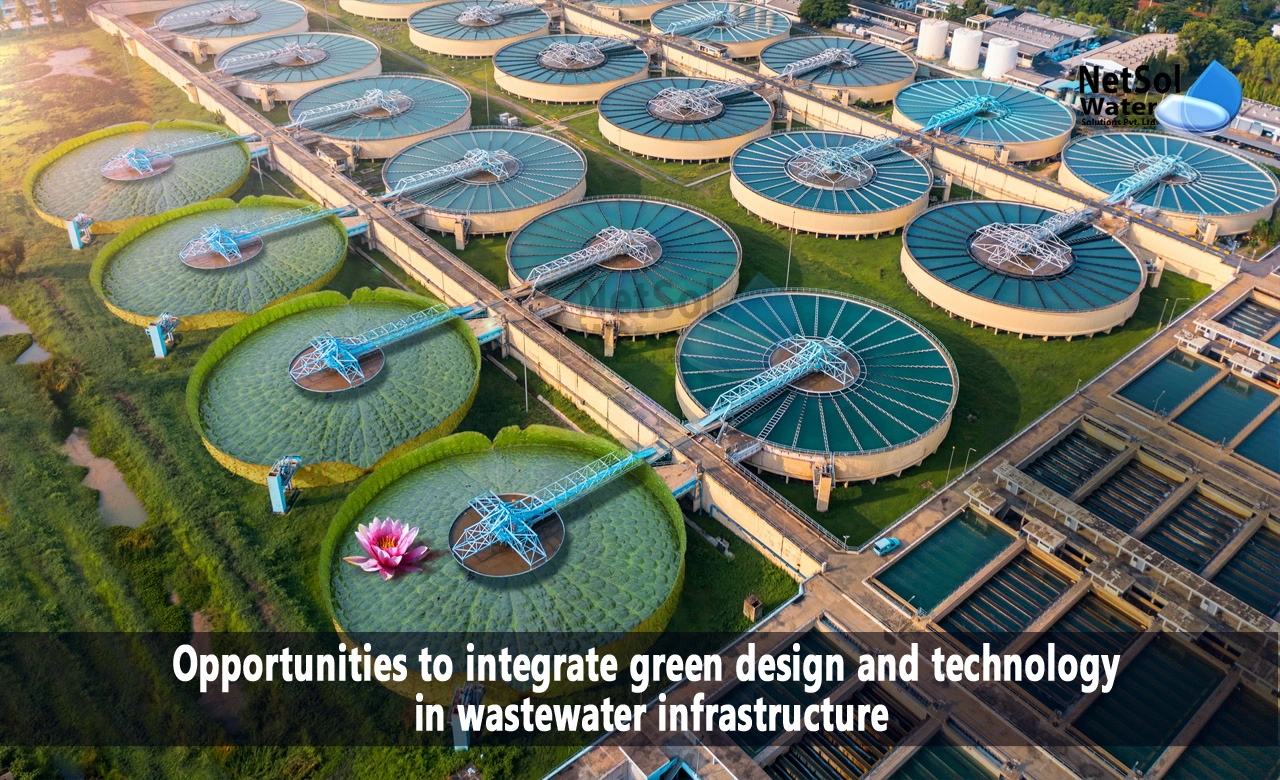How to integrate green design and technology in Wastewater Treatment?
Sustainability is becoming a priority across the building and infrastructure sectors, including wastewater treatment plants. Facilities can demonstrate their commitment to sustainability through green building certification programs like the Leadership in Energy and Environmental Design (LEED) rating system. Pursuing certification for new or upgraded wastewater plants brings environmental, social, and economic benefits. This article explores opportunities to integrate green design and technology into wastewater infrastructure.
LEED Certification Overview
LEED is a globally recognized program developed by the U.S. Green Building Council to evaluate the design, construction and operation of green buildings. Points are earned across nine categories:
- Sustainable Sites
- Water Efficiency
- Energy and Atmosphere
- Materials and Resources
- Indoor Environmental Quality
- Innovation in Design
- Regional Priority
Based on total points, projects earn one of four LEED rating levels: Certified, Silver, Gold or Platinum. Over 100,000 commercial buildings have achieved LEED certification to date. The program has specific criteria tailored to wastewater treatment plants.
Water Efficiency Opportunities
There are several options to boost water efficiency at wastewater facilities:
- Installing water meters to monitor usage
- Using non-potable water for appropriate applications
- Capturing rainwater for landscaping irrigation
- Adding dual flush toilets and low-flow fixtures
- Upgrading to water efficient pumps, blowers, and motors
Reusing treated wastewater for washdown, irrigation, and process uses also conserves water. Sludge drying beds can be covered to collect rainfall. Pursuing these strategies earns LEED Water Efficiency credits.
Energy Conservation and Efficiency
Wastewater treatment is an energy-intensive process. Facilities can target these areas for energy savings:
- Aeration system optimization
- Premium efficiency motors
- Advanced pumping controls
- Solar panels or wind turbines
- Co-digesting fats/oils/grease to boost biogas
- Methane capture and reuse for heating and power
- Variable frequency drives on rotating equipment
- LED lighting retrofits
Energy reductions of 10-50% are achievable to gain LEED Energy and Atmosphere credits.
Sustainable Sites
LEED rewards sustainable site selection and development. Wastewater plants can incorporate:
- Brownfield redevelopment
- Reduced parking footprint
- Habitat restoration
- Stormwater management
- Drought-tolerant landscaping
- Low-impact development practices
- Efficient irrigation systems
- Alternative transportation for staff
Materials Selection
Points are available by specifying green materials like:
- Locally-sourced concrete, steel, lumber
- Recycled content materials
- FSC Certified wood
- Low or no VOC coatings/adhesives
- Regionally manufactured products
- Low carbon footprint materials
Many process equipment vendors now offer sustainability data on products to assist in material selections.
Waste Reduction and Recycling
Recovering energy, nutrients and water from solids waste streams boosts sustainability. Other waste reduction options include:
- Comprehensive recycling program
- Digestion to reduce solids volume
- Biosolids reuse for fertilizer, fuel, etc
- Pipes/valves from HDPE recycled plastic
- Minimizing excavated soils disposal
A zero waste philosophy aligned with the circular economy model benefits both the environment and the bottom line.
Indoor Environmental Quality
Worker safety, health, and productivity is improved through:
- Increased ventilation
- Low VOC materials
- Superior acoustics
- High-efficiency filtration
- Thermal comfort
- Daylighting
- Green cleaning program
- Third-party indoor air testing
Innovation in Design
New treatment technologies, holistic integration, and exemplary performance above criteria can achieve Innovation credits. For example:
- Nutrient recovery systems
- Algae bioreactors
- Microbial fuel cells
- Combined heat and power
- Virtual monitoring systems
- Climate resilient design
Pursuing LEED certification drives ingenuity in treatment plant design, construction and operation. The program also boosts public recognition of the facility’s commitment to environmental stewardship. With focused planning, wastewater infrastructure can make valuable contributions to sustainable development.
Netsol Water is Greater Noida-based leading water & wastewater treatment plant manufacturer. We are industry's most demanding company based on client review and work quality. We are known as best commercial RO plant manufacturers, industrial RO plant manufacturer, sewage treatment plant manufacturer, Water Softener Plant Manufacturers and effluent treatment plant manufacturers. Apart from this 24x7 customer support is our USP. Call on +91-9650608473, or write us at enquiry@netsolwater.com for any support, inquiry or product-purchase related query.



